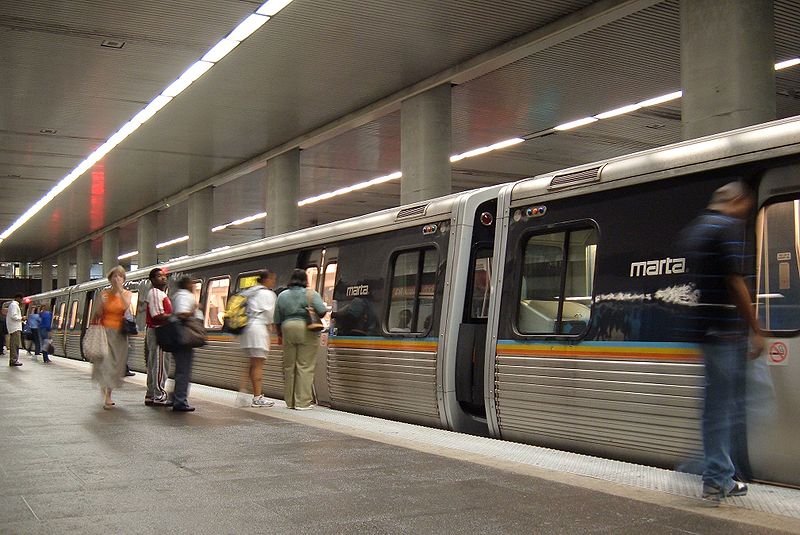Residents of Atlanta's Gwinnett County suburb will go to the polls tomorrow with a chance to right a historic wrong.
Voters are being asked to approve a one-cent tax to expand the Peach City's MARTA transit system into the booming bounty of 920,000. The expansion measure would lengthen MARTA's heavy rail routes and establish a 50-mile bus rapid transit system for a county with few transportation options except driving.
The vote is an opportunity to correct mistakes from the past. One by one, in 1965 and 1971, Atlanta's northern suburbs rejected transit, a decision Atlanta Magazine later called "referendums on race" and "where it all went wrong" for Atlanta.
But since then Gwinnett County has become far more diverse, with a minority of residents white. If the ballot measure is successful, many expect neighboring Cobb County to follow with its own referendum in 2022.
But Republicans still control the county commission in Gwinnett. And they used their authority to place to issue on the March ballot, rather than in 2018 as Democrats preferred. That decision, meant to minimize losses for Republicans in 2018, may end up sinking the measure.
About 27,000 votes have already been cast early and they have overwhelmingly come from older white people — the demographic that is likely to be least friendly to transit, the Marietta Daily Journal reports.
Transit advocates say the final tally could still go either way.
"It's about who shows up and I am not sure it's enough to get enough folks to the polls," Georgia State University Urban Studies Professor Dan Immergluck told Streetsblog. "Also, while Gwinnett has changed significantly even in the last seven, eight years, the 'outside the perimeter' track record on transit voting is not good."
Atlanta's suburban counties all voted against a spending package for transit and roads named T-SPLOST in 2012. Since then, the City of Atlanta and lower-income Clayton County to the south went on to approve increased transit spending.
Meanwhile, the Empire City of the South's formerly segregated northern counties still have few options outside of soul-crushing traffic.
Even if the issue fails, however, it may be only a matter of time before Gwinnett and Cobb embrace transit, the Atlanta Journal Constitution wrote last week. Gwinnett will continue to get more diverse and more Democratic — and Democrats are poised to take over the County Commission. That could mean a new referendum on the 2020 ballot, wrote the AJC's Jim Galloway.






